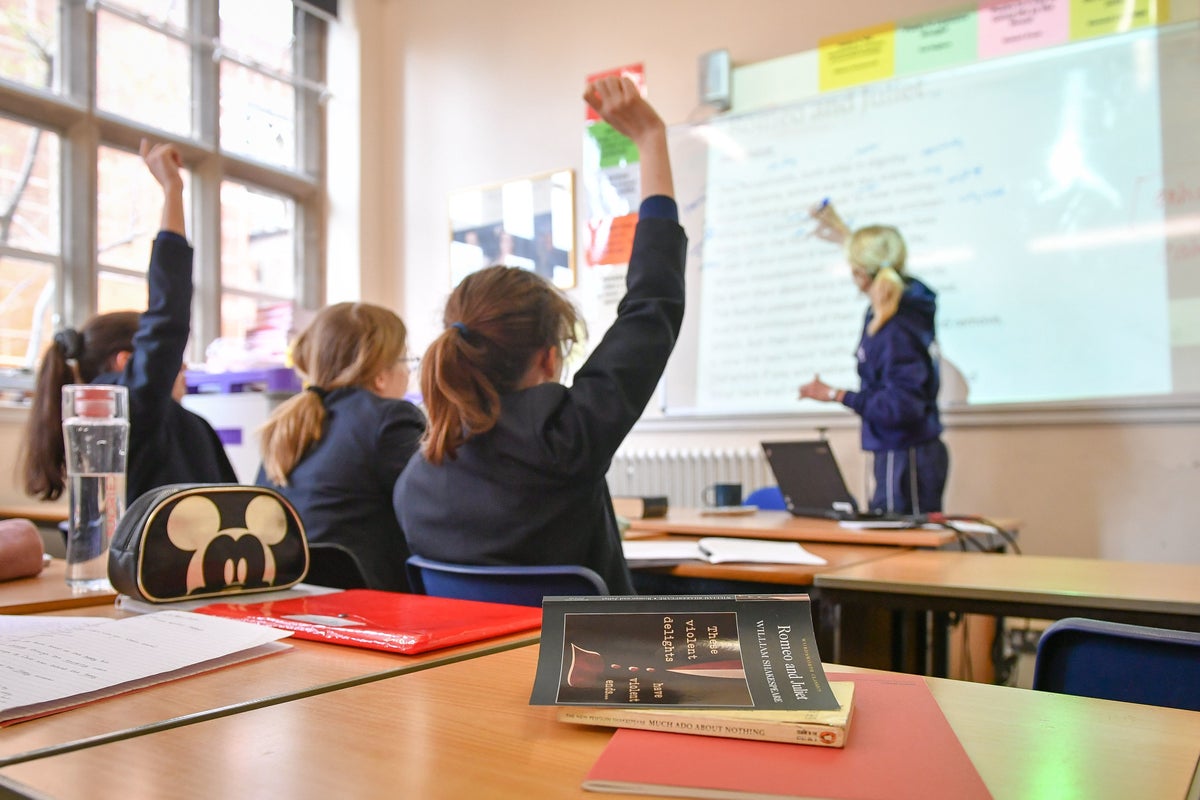
Smartphones should be banned from classrooms across the world in a bid to improve learning and protect children from online bullying, a UN report has recommended.
Unesco, the educational, scientific and cultural wing of the UN, said there was evidence that excessive mobile phone usage was linked to reduced educational performance.
It added that high levels of screen time had a negative effect on children's emotional stability.
The UN agency warned policymakers against an unthinking embrace of digital technology and asked them to take heed of the “social dimension of education”. It added: “Those urging increasing individualisation may be missing the point of what education is about.”
The agency said digital technology as a whole, including artificial intelligence, should never take precedence over a “human-centred vision” of education or replace face-to face interaction teaching.
“Not all change constitutes progress. Just because something can be done does not mean it should be done,” the report concluded.
Unesco’s director-general Audrey Aloza told the Guardian: “The digital revolution holds immeasurable potential but just as warnings have been voiced for how it should be regulated in society similar attention must be paid to the way it is used in education.
“Its use must be for enhanced learning experiences and for the wellbeing of students and teachers, not to their detriment.
“Keep the needs of the learner first and support teachers. Online connections are no substitute for human interaction.”
Unesco urged countries to ensure they had clear objectives and principles in place to ensure digital technology was beneficial to students instead of harming them.
It said excessive or inappropriate student use of technology in the classroom and at home, whether smartphones, tablets or laptops, could be distracting, disruptive and result in a detrimental impact on learning.
According to the UN agency, countries were “waking up to the importance of putting learners first” when it came to digital technology.
It said China has limited use of digital devices as teaching tools to 30 per cent of all teaching time, with students expected to take regular screen breaks.
Unesco estimated one in four countries had banned smartphones in school, either through law or guidance. These included France, which introduced its policy in 2018 and Finland being the latest European country to ban phones in classrooms to curb slumping exam results.
Italy banned the use of mobile phones in schools in December and teachers were instructed to collect the devices from students at the start of the day. The Netherlands is expected to bring in restrictions from 2024.
In the UK, the former education secretary Gavin Williamson called for a mobile phone ban in schools in 2021 to improve student discipline but was dismissed as a “distraction” by education unions.
Geoff Barton, general secretary of the Association of School and College Leaders, said that the majority of "schools will already have robust policies about mobile phones in place".
“Banning mobile phones entirely from school premises would raise some practical concerns, for example for parents wanting to contact their children while travelling between school and home. Some pupils will also use phones as payment methods on public transport.”
Nick Gibb, the veteran Schools Minister, told The Telegraph that parents should give their children “brick phones” instead of smartphones to help them make better use of their time at school.







